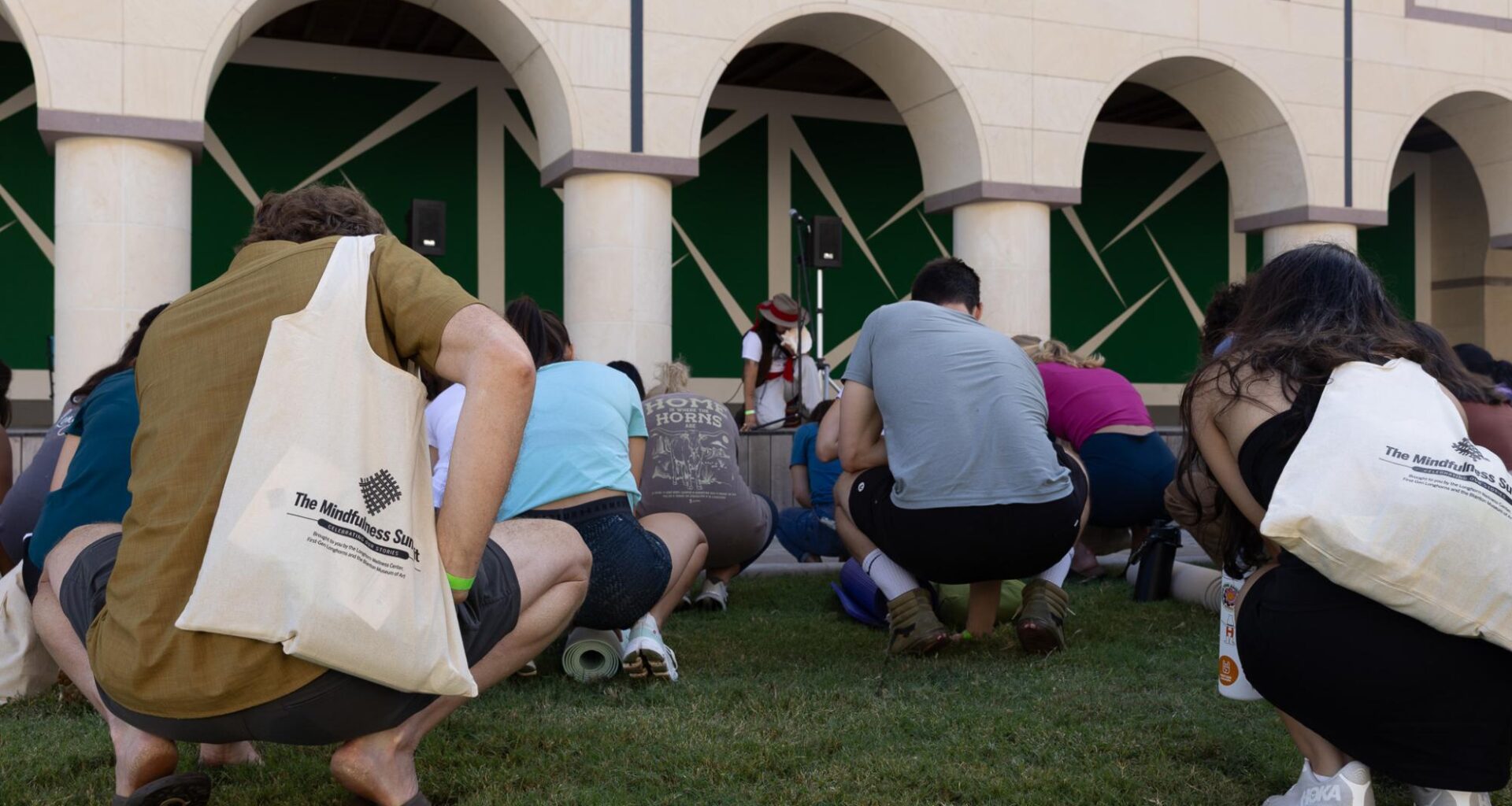Over 150 students participated in events like yoga, silent disco and craft-making during the third annual Mindfulness Summit at the Blanton Museum of Art on Oct. 18.
The Longhorn Wellness Center, the Blanton Museum of Art and First-Gen Longhorns organized the summit this year with the theme of “Celebrating Our Stories.”
“Each of us has our own story of growth, of resilience, of discovery,” said Ariane Stier, coordinator of First Gen Longhorns. “Today is about using mindfulness to honor those stories and the connections that unite all of us.”
Students split up into three breakout sessions and participated in activities, including yoga, guided meditation, drawing, crafts, silent disco and a sound bath. “Honoring Your Past,” one of the activities offered, drew on an indigenous Coahuiltecan tradition and gave participants a chance to create a centerpiece commemorating their experiences.
“Spirituality gives you something large to believe in, gives you something to strive towards,” said activity leader Juan Leyva, who works with the non-profit Indigenous Cultures Institute. “Mindfulness gives you that same sense of doing things purposefully.”
Siobhán McCusker, senior museum educator at the Blanton, said the organizations identified common objectives between their existing projects on mindfulness.
“We think there’s huge strength in learning from each other and from other departments or initiatives on campus,” McCusker said.
James Butler, Longhorn Wellness Center manager, helped create the summit three years ago. He said helping students incorporate mindful practices into their routine remains a top goal.
“There’s no one right way to practice mindfulness,” Butler said. “(The goal is to get) students to experience different types of mindfulness.”
Psychology senior Ashni Guneratne, who has worked with the Longhorn Wellness Center since her freshman year, has been with the summit since its beginning. As a student assistant for mindful UT, a program offering mindfulness-based classes and workshops, she said it is important to promote a culture of mindfulness on campus beyond one-on-one counseling.
“Maybe you don’t always need to go to the (University Health Services),” Guneratne said. “There are other ways that you can engage in your own well being.”

